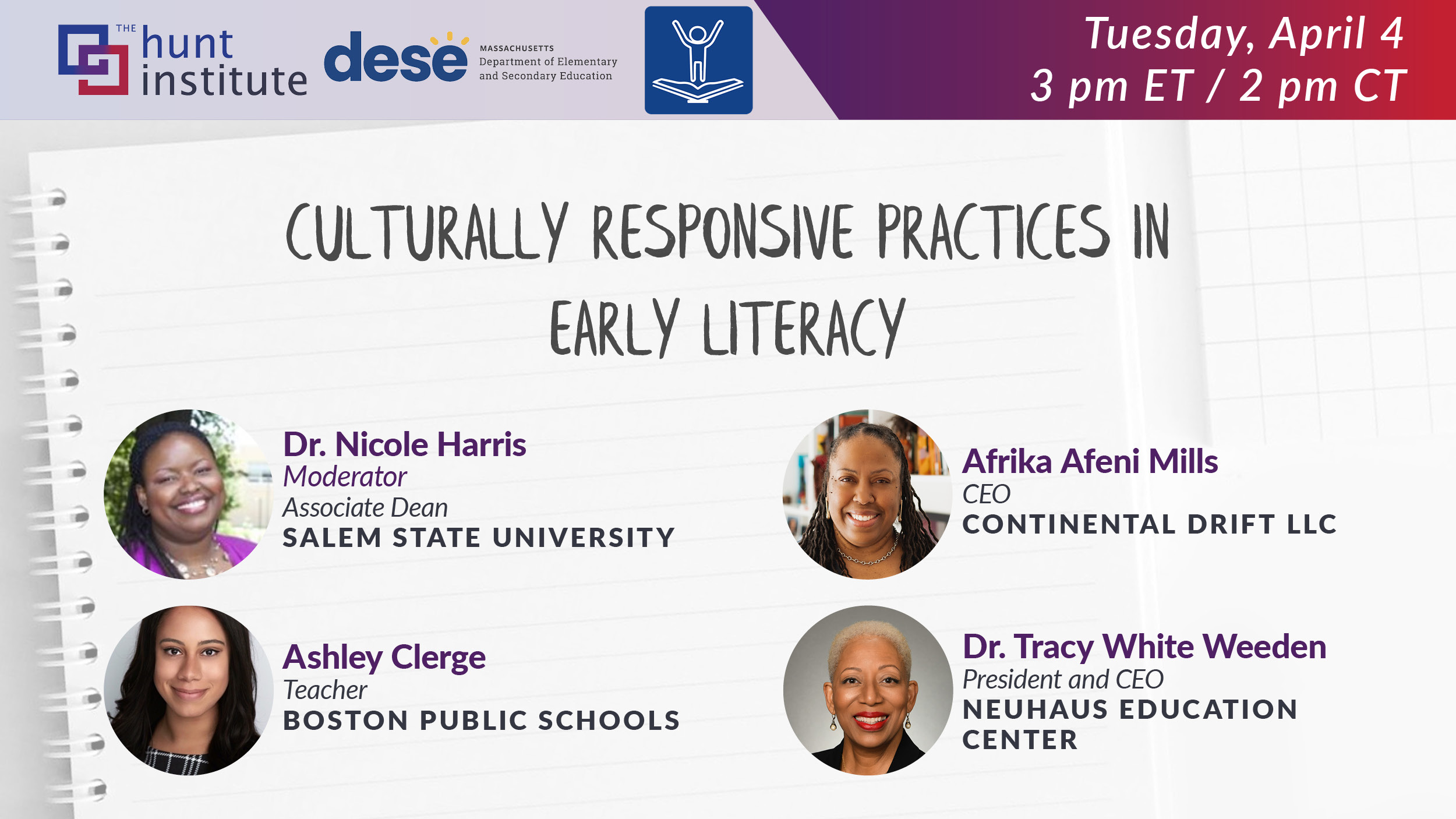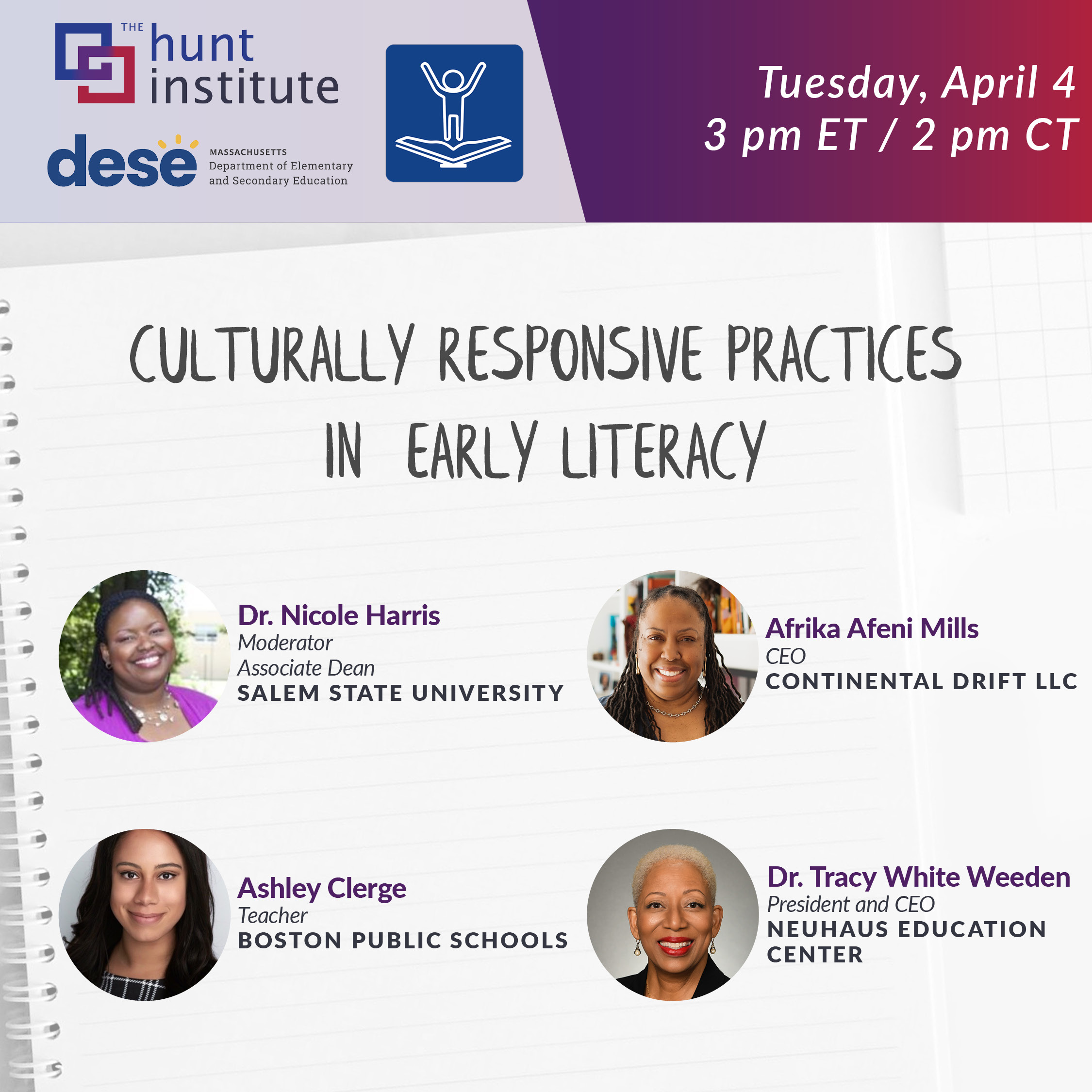Looking forward to hearing from @njharrisphd, @AfeniMills, @weedentracy and Ashley Clerge on 4/4 for a webinar hosted by The @Hunt_Institute and @MASchoolsK12 that will examine the impacts of culturally responsive instruction. Register here to attend: https://us06web.zoom.us/webinar/register/9616754488831/WN_j9A9UPHyRdKQtVgC-dS9ZQ
What is culturally responsive teaching, and how does it affect students? Join The @Hunt_Institute and @MASchoolsK12 on 4/4 for a webinar with resource experts to discuss! Register here to attend: https://us06web.zoom.us/webinar/register/9616754488831/WN_j9A9UPHyRdKQtVgC-dS9ZQ
Culturally responsive teaching means educators adapt their instructional methods to use strategies and language consistent with the values of their students’ identities – giving students, particularly from historically marginalized communities, a more equitable and enriching education experience. Research highlights that culturally responsive teaching allows students to feel more recognized, feel valued for their contributions, and eager to learn.
Join The Hunt Institute and The Massachusetts Department of Elementary and Secondary Education on 4/4 for a discussion on the impacts of culturally responsive instruction, challenges to implementation, and national best practices.
Register here to attend: https://us06web.zoom.us/webinar/register/9616754488831/WN_j9A9UPHyRdKQtVgC-dS9ZQ
#Education #EducationPolicy #EducationMatters #Literacy #Equity
Hi (name),
Culturally responsive teaching means educators adapt their instructional methods to use strategies and language consistent with the values of their students’ identities – giving students, particularly from historically marginalized communities, a more equitable and enriching education experience. Research highlights that culturally responsive teaching allows students to feel more recognized, feel valued for their contributions, and eager to learn.
Join The Hunt Institute and The Massachusetts Department of Elementary and Secondary Education on 4/4 for a discussion on the impacts of culturally responsive instruction, challenges to implementation, and national best practices.
Panelists include:
- Afrika Afeni Mills, Adjunct Professor, Boston College
- Ashley Clerge, Teacher, Boston Public Schools
- Dr. Tracy White Weeden, President and CEO of Neuhaus Education Center
- Dr. Nicole Harris, Associate Dean, Salem State University
Register here to attend: https://us06web.zoom.us/webinar/register/9616754488831/WN_j9A9UPHyRdKQtVgC-dS9ZQ
See you there!
Sincerely,
(name)




